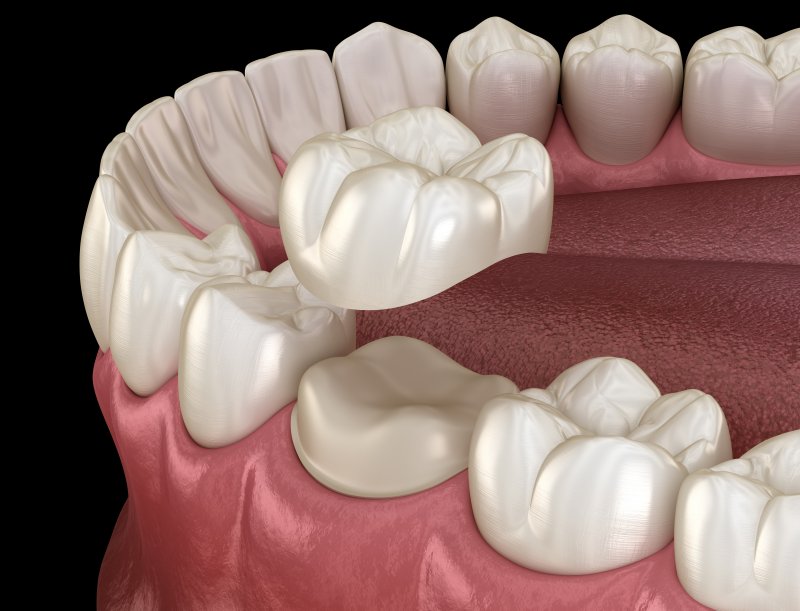
Dental crowns are considered to be some of the most reliable and trustworthy restorative solutions available. Used to protect vulnerable teeth from future decay and damage, they can be made from all types of materials, including those that maintain a more natural appearance (i.e., porcelain, ceramic). When learning you need one to safeguard your smile, you may wonder what to expect after receiving a dental crown. A dentist is here to share a few helpful tips so that you can take better care of your new tooth.
Will I Experience Pain After Receiving a Dental Crown?
During the process of having it put into place, you will feel no pain whatsoever. This is thanks to the local anesthetic you will receive. However, once the effects wear off, you can expect there to be some discomfort and soreness afterward. Fortunately, this only lasts 1-2 weeks.
During this time, you can take an over-the-counter pain reliever to reduce discomfort and allow for greater comfort. But you should also expect to experience some minor sensitivity because of the irritation to your gum tissues. Desensitizing toothpaste can be helpful to minimize pain.
What Kind of Diet is Expected?
In the beginning, you’ll want to avoid eating anything sticky for the first day, as this can cause the dental crown to come off. The cement used to hold it in place needs adequate time to set, so it’s best to stay away from anything sticky, hard, or chewy. Over time, you can begin to slowly incorporate these back into your diet.
How Should I Plan to Care For My New Crown?
When it comes to oral hygiene, it’s important that you take proper care of your new tooth so that bacteria don’t try to accumulate and reinfect it. Brushing your teeth twice each day with fluoridated toothpaste for two minutes as well as flossing is essential.
You will need to be careful when using dental floss, though, because you can dislodge your crown if you lift it while attempting to remove the floss. Instead, make sure that you use a floss threader or water irrigator to make the process easier.
Caring for your dental crown doesn’t have to be difficult. Although it can take some time in the beginning to become accustomed to this new tooth, you’ll soon find that it works and looks just like a regular tooth, allowing you to enjoy life with a fully functional smile.
About the Author
Dr. Peter Hammes earned his Doctor of Dental Surgery degree from the University of Illinois-Chicago before enlisting in the U.S. Navy. After completing his one-year Advanced Education in General Dentistry (AEGD) residency, he went on to finish a one-year fellowship in implant dentistry at the Southern Illinois University School of Dental Medicine. Opening his practice in 2016, he and his team work hard to deliver exceptional restorative care to patients needing dental fillings and crowns for decayed or damaged teeth. If you need a customized restoration to better protect your smile, please contact us at (312) 624-8070 today!



